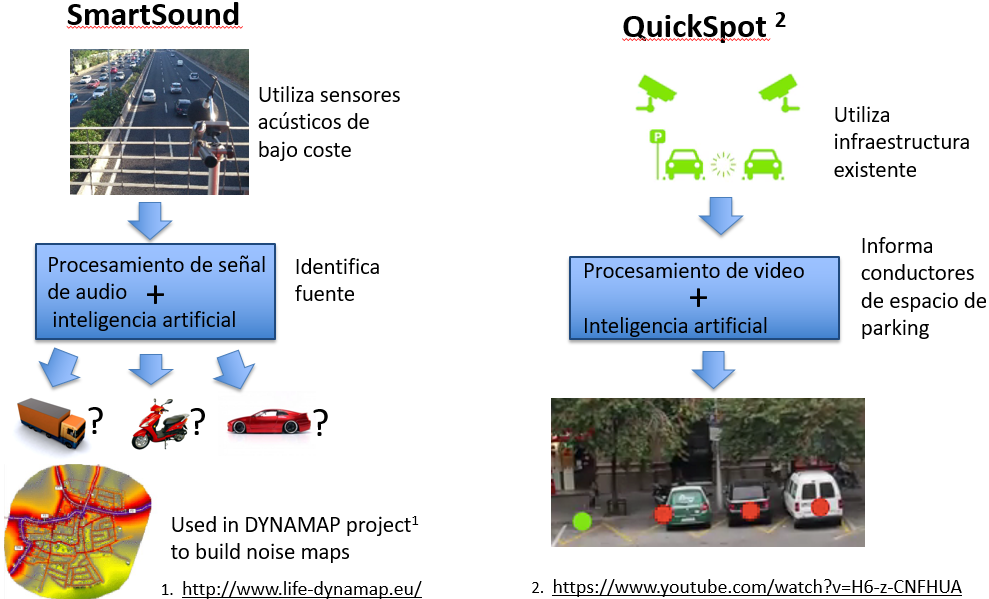
La Salle Research Group on Media Technologies (GTM) - URL has, at this moment, different research projects to develop applications based on sensor technology. Currently there are different intelligent services that use sensors distributed in the city for different purposes, such as monitoring traffic congestions, buildings vibrations, environmental noise, or to optimize street lighting and waste collection.
These projects, with a totally practical orientation, develop technologies that seek to improve the quality of life in cities, and for this, the use of low cost sensors and the reuse of infrastructures already deployed in the city are taken into account. One of these projects is SmartSound, which uses low-cost acoustic sensors that incorporate artificial intelligence to identify different types of noise. This technology can be used for the generation of robust traffic noise maps in real time, and thus establish action plans to reduce the impact of noise on people in an appropriate manner, in accordance with local and European regulations. Also, these maps can be used as a basis to understand the effect of noise on health through epistemological studies. Another project is QuickSpot that uses pre-installed security cameras in the city to detect free parking spaces. This same technology can be used for, for example, traffic management (eg, optimizing its flow), studying its flow, vehicle trajectories and lane changes (eg improving safety).
Although it seems that there are no limits to human ingenuity, the development of sensor-based intelligent services poses different challenges, both technical and social. The challenges are both technical and social, as well as its robust scalability in the first case and, in the second, the reaction of society to technology. That is why the GTM has set itself the challenge of designing intelligent services based on sensors that can accommodate uncertainty and avoid its unwanted effects with the SmartSense - Scalable & Sustainable Smart City Services, which seeks to understand the context in which they will be implemented This type of solutions, identifying the needs, interests, concerns, and beliefs of the actors involved to develop technologies that accommodate the uncertainty so typical of large urban centers, based on the SmartSound and QuickSpot technologies.
The SmartSense project is co-financed by ACCIÓ and the European Union (through the Marie Skłodowska-Curie actions of the H2020 program), and has allowed Dr. Leticia Duboc to join the GTM since October 2017 to work on the transfer of these technologies to the market of smart cities (TECSPR16-1-0066). In addition, they have recently received help from the Ramon Llull University (2016-URL-Trac-004) to advance the technologies developed. Currently the project is in the analysis phase of the technologies and the market situation, as well as the possible ways and models of technology transfer that best suit the solutions proposed under the SmartSense project.


